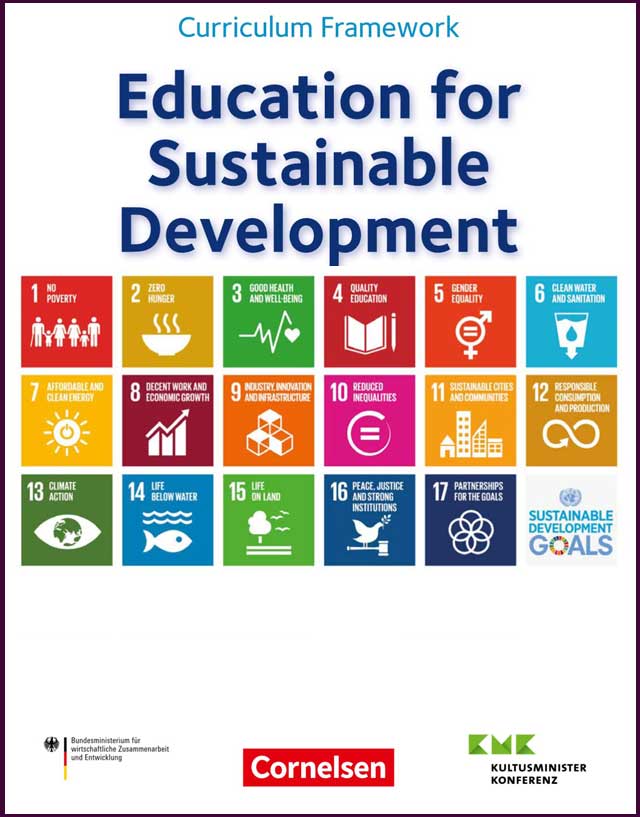The Curriculum Framework for Education for Sustainable Development (CF ESD) is the product of a joint project of the Standing Conference of the German Ministers of Education and Culture (KMK) and the German Federal Ministry of Economic Cooperation and Development (BMZ). It is a framework created to include education for sustainable development (ESD) in schools, in teaching, and in learning materials.
The CF ESD designates eleven core competencies in the areas of recognition - evaluation - action, from which subject-related competencies can be derived. It defines interdisciplinary core competencies and formulates subject-specific sub-competencies. In addition, it proposes 21 overarching topics that are related to different subjects. This enables a structured curricular development of the learning area "Global Development" across subject boundaries.
Teaching and learning material, which are based on the conceptual foundation of the Curriculum Framework, are premised on principle of sustainable development which includes four dimensions: economic, social, environmental, and political. Sustainable development is considered to be a process that aims to achieve multi-generational ecological compatibility, social justice, economic efficiency and democratization worldwide. Conflicts of these goals inevitably appear between and within the four dimensions. Thus students are encouraged to recognize these conflicts, to evaluate them and to take a defensible position. Furthermore, it is important to learn how to deal with uncertainties appropriately.
Especially the competence of changing perspectives is of great importance. This can take place, for example, through an intercultural exchange in the field of fine arts. Students are thus enabled to immerse themselves in the world of their partners on an artistic level, to get to know new perspectives and to put their own and foreign cultural values in relation to each other.

